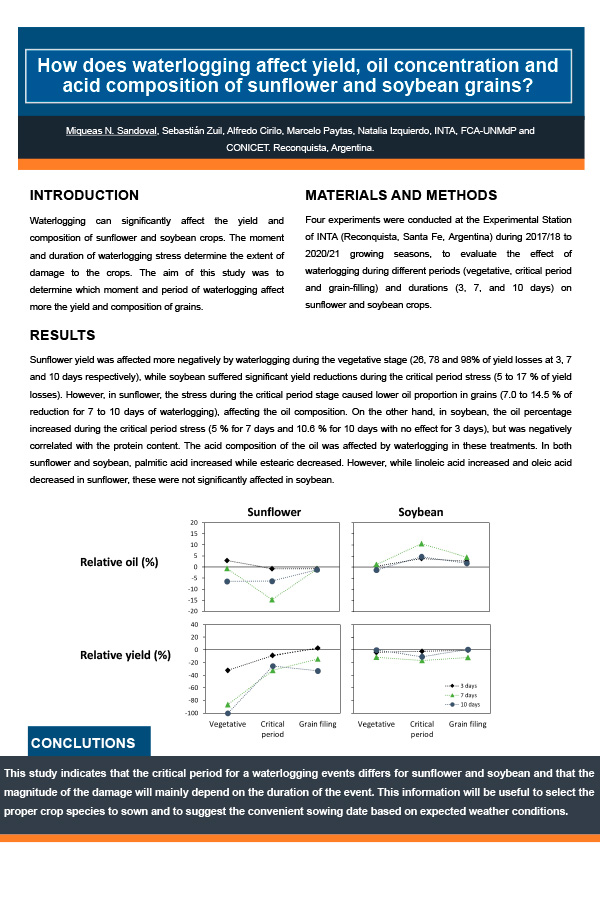Waterlogging can significantly affect the yield and composition of sunflower and soybean crops. The moment and duration of waterlogging stress determine the extent of damage to the crops. The aim of this study was to determine which moment and period of waterlogging affect more the yield and composition of grains. Four experiments were conducted at the Experimental Station of INTA (Reconquista, Santa Fe, Argentina) during 2017/18 to 2020/21 growing seasons, to evaluate the effect of waterlogging during different periods (vegetative, critical period and grain-filling) and durations (3, 7, and 10 days) on sunflower and soybean crops. The results showed that sunflower yield was more negatively affected more by waterlogging during the vegetative stage (26, 78 and 98% of yield losses at 3, 7 and 10 days respectively), while soybean suffered significant yield reductions during the critical period stress (5 to 17 % of yield losses). However, in sunflower, the stress during the critical period stage caused lower oil proportion in grains (7.0 to 14.5 % of reduction for 7 to 10 days of waterlogging), affecting the oil composition. On the other hand, in soybean, the oil percentage increased during the critical period stress (5 % for 7 days and 10.6 % for 10 days with no effect for 3 days), but was negatively correlated with the protein content. The acid composition of the oil was affected by waterlogging in these treatments. In both sunflower and soybean, palmitic acid increased while estearic decreased. However, while linoleic acid increased and oleic acid decreased in sunflower, these were not significantly affected in soybean. This study indicates that the critical period for a waterlogging events differs for sunflower and soybean and that the magnitude of the damage will mainly depend on the duration of the event. This information will be useful to select the proper crop species to sown and to suggest the convenient sowing date based on expected weather conditions.
